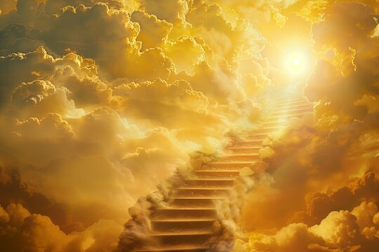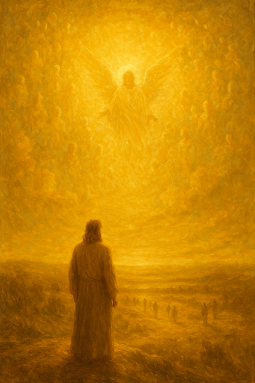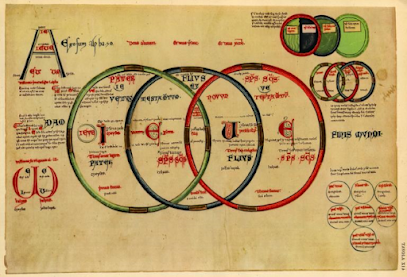Dear brothers and sisters,
Living on this planet is not a coincidence; it is a great test, a proving ground where our souls and spirits are shaped. Here, we are given the sacred chance to prove ourselves worthy of living eternally in the Kingdom of Love, Peace, Harmony, Justice, and Righteousness. Imagine if our souls and spirits, still young and immature, were suddenly placed in a realm of perfect Peace and Light. We would feel out of place, like fish out of water, unable to breathe in the pure air of such a place, unable to move in its higher currents. To be there, we must first learn to resonate with that frequency.
Earth is the school, the training ground, the forge. Here, we encounter trials, challenges, and difficulties because they refine us. They teach patience, courage, humility, and compassion. We must not see our struggles as punishments, but as opportunities to grow. Without challenge, there is no strength; without sorrow, we cannot truly understand joy.
The forces that oppose spiritual growth are real. They are subtle and persistent, working through despair, hatred, greed, and fear to imprison souls and spirits in lower states of being. These forces thrive in war, injustice, corruption, and moral decay. They exist to keep us distracted from our higher calling. Look at the world around us: endless conflicts, genocides, such as that in Gaza, the destruction of our environment through toxic pollution and exploitation, the looming threat of nuclear devastation, and the moral disintegration of our society. We must never forget the horrors of Hiroshima and Nagasaki, where in an instant, atomic weapons unleashed destruction beyond imagination, wiping out entire cities and leaving deep scars on humanity’s conscience. Such atrocities must never be repeated. The shadow of nuclear war still hangs over our world, and it is our duty to ensure that such darkness never falls again.
Moreover, political, religious, and educational institutions are often corrupted, no longer serving the Truth but rather power and self-interest, the evil forces. Yet, this is not the whole story. Against these forces stand the luminous powers of Love, Truth, and Righteousness. The angelic forces of evolution are with us when we sincerely walk the path of Light. Their assistance is not always obvious, but it is real. They inspire courage when fear surrounds us, they whisper truth in moments of confusion, and they help us rise when we have fallen.
To reach spiritual elevation, we must consciously choose the Virtues that align us with higher realities: chastity to guard purity, temperance to keep balance, charity to open the heart, diligence to persevere, kindness to heal wounds, patience to endure without bitterness, and humility to remember that we are all parts of the One. Every act of virtue raises our inner frequency. Every time we speak the truth, forgive an enemy, care for the weak, or defend the innocent, we step closer to the gates of Heaven.
However, spiritual elevation is not reached in a single leap; it is the work of a lifetime. It requires daily practice. Meditation, prayer, honest self-reflection, and service to others are essential tools. We must also care for the Earth, as it is both our home and our teacher. The rivers, the forests, the animals, and even the air we breathe remind us that all life is connected. When we harm creation, we harm ourselves.
Furthermore, True Happiness is not found in wealth, status, or power. It is found in the harmony between body, soul, and spirit. When we live in Virtue, we experience Peace within, and this Peace flows outward, touching those around us. In the eternal realm and higher dimensions, there is no room for selfishness, cruelty, or greed; so, we must cleanse ourselves of these here and now. In Heaven, there is abundance for everyone.
Therefore, beloved brothers and sisters, I speak with all the urgency of my heart: Awaken. Rise. Become conscious. Life is the test, and it passes swiftly. Do not let it pass in distraction or numbness. Feel with your heart. See with your soul. Let your spirit shine with the Light that was placed within you by our Uncreated Creator. Together, we can resist and fight against the darkness, transform our world, and prepare ourselves for the eternal Kingdom where Love and Peace reign forever.
The time is now. The choice is yours.
With Love and Truth,
A seeker of Peace
-------------------------------------
Further readings for deeper reflection:
Seneca – De Providentia, De Vita Beata, Epistulae Morales ad Lucilium
Marcus Aurelius – Meditations
Aristotle – Nicomachean Ethics
Hesiod – Works and Days
Plato – Cratylus, Laws
Virgil – Fourth Eclogue
Seneca – Epistle 90
Horace – Epode 16 (“Islands of the Blest”)
Ovid – Metamorphoses
Joachim of Fiore – The Three Ages
Giordano Bruno – final dialogue with Sagredo before Bruno's death

.png)
.png)


.png)








